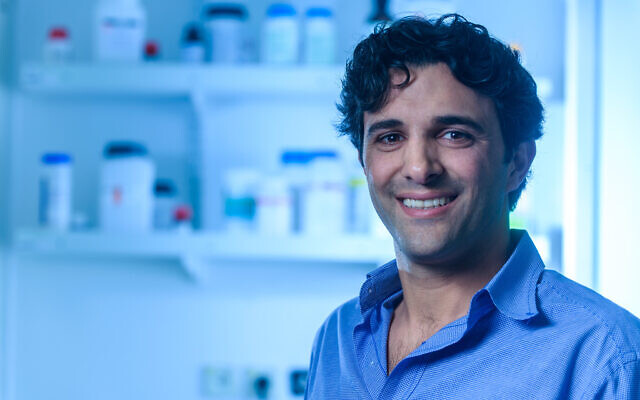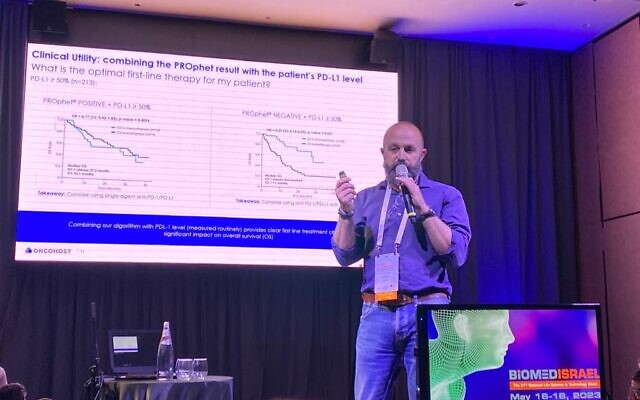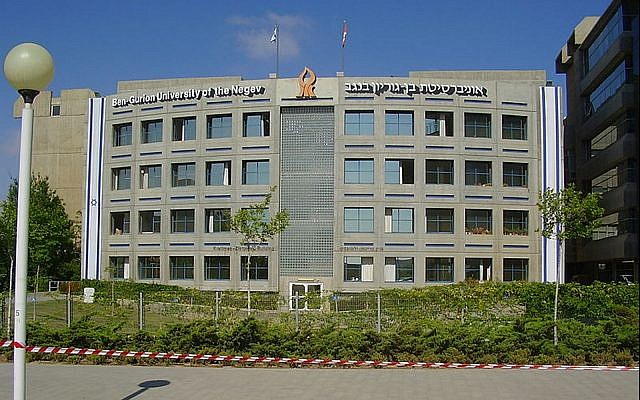Researchers at Ben-Gurion University of the Negev have developed a new bio-sensing technique that predicts cancer patients’ response to immune checkpoint inhibitors (ICIs). immunotherapy, More precise and easier to implement than current methods, the technology has the potential to improve the effectiveness of immunotherapy and sidestep the toxicity and debilitating side effects of patients.
bioassay Prof. Faculty of Health Sciences, BGU. Moshe Elkabets and Prof. Angel Porgador, along with collaborators from the Soroka Medical Center in Beersheva and the Barzilai Medical Center in Ashkelon. The results of his study were recently published In the peer-reviewed journal Science Advances.
New immuno-checkpoint artificial reporter (ICAR) technology has been licensed oncohost, an Israeli-directed oncology company, which will seek US Food and Drug Administration approval. OncoHost CEO Dr. Ofer Sharon told The Times of Israel that he expects clinical trials to begin in six to eight months and expects the product to reach the market in no more than two years.
“This product has huge potential. It’s very exciting and we have an ambitious plan for it,” said Sharon.
Immunotherapy is a treatment that boosts the body’s immune system to help it find and destroy cancer cells. Depending on the patient’s case, it may be combined with other treatments such as chemotherapy, radiotherapy and surgery. The research and medical communities are excited about the potential of immunotherapy and hundreds of drug trials are underway in the US. However, immunotherapy is currently approved only for some 20 types of cancer, Also, the reaction rate is only 20-40 percent and treatment can lead to toxicity and Side effects Which negatively affects the quality of life.
ICI is one of several types of immunotherapy. This involves giving monoclonal antibody drugs through an infusion into a vein. These drugs are designed to break down the protein “checkpoints” that cancer cells make to protect themselves from antibodies that want to destroy them.

Dr. Moshe Elkabets of Ben-Gurion University of the Negev. (Courtesy of Dani Fish/BGU)
The most common ICI is called anti-PD1. The therapy interferes with the tumor’s attempts to suppress the immune system’s ability to attack cancer by T cells. T cells have a PD1 protein “off switch” that tells T cells to leave other cells alone. This switching off occurs when the PD1 receptor binds to PDL1 or PDL2 ligands (also proteins) of other cells.
Cancer cells have many PDL1 and PDL2 ligands, so they can escape the attack of T cells. This is the “checkpoint” that cancer cells put in place to protect themselves. The anti-PD1 agent given in ICI therapy inhibits the binding of ligands and receptors and enhances the body’s immune response.
“The therapy blocks the tumor’s ability to evade anti-tumor immunity,” Elkabets explained.
Before now biomarkers existed to predict the success of ICI on a patient, but according to Elkabets, only 10-15% of these trials had a response.
“The difference with our bioassay is that it looks for functionality. Other technologies only look for protein expression,” Elkabets said.

Ofer Sharon, CEO of OncoHost, speaks at the BioMed Israel 2023 conference, Tel Aviv, May 16, 2023. (Alexander Elman)
“Perhaps expression matters. But what is more important is the functionality of the binding of ligands and receptors. You need to know how many ligands can suppress T cells. You can have lots of proteins and lots of active There are not, and some are but many of them are very active,” he said.
OncoHost’s Sharon explained that the researchers developed an artificial body based on a T cell (ICAR) and expressed PD1 on its surface. They incubated this cell with a tumor and looked to see if the cell was secreting specific substances that could be measured easily. Interleukin-2 (IL-2), Secretion occurs only when PD1 is activated.
“So now we have an assay that allows us to identify functionality based on increased secretion of IL-2 levels. It’s basically a new biosensor,” he said.
The BGU team was able to measure the protein’s functionality in a fixed tissue, or old pathology sample. This is a clear advantage over current techniques which involve screening fresh tissue samples, which means patients undergo multiple biopsies over time.
“With our technology, I can take samples from pathology over 10 years and I can retrospectively study thousands and thousands of patients to look for new potential patients who may respond to treatment. Selecting the right patients will help. There is a limitless opportunity with this technology,” Elkabets said.

Ben-Gurion University (Dr. Avishai Teacher, www.pikiwiki.org.il)
Both Elkabets and Sharon emphasized that this new technique is not just for PD1 and can be adapted for other proteins found on T cells, including CTLA-4 and others.
“I think we will potentially be able to use this technology to identify immune checkpoint combination therapies,” Elkabets said.
As she prepares to engage with the FDA, Sharon is pleased with the data available.
“We have something with very high sensitivity specificity compared to current PDL1 biomarkers … and we already have results for several tumor types — lung, metabolic, renal cell and melanoma –,” Sharon said.
“So different tumor types, better accuracy, and a device that I think is scalable at a relatively low cost,” he said.
